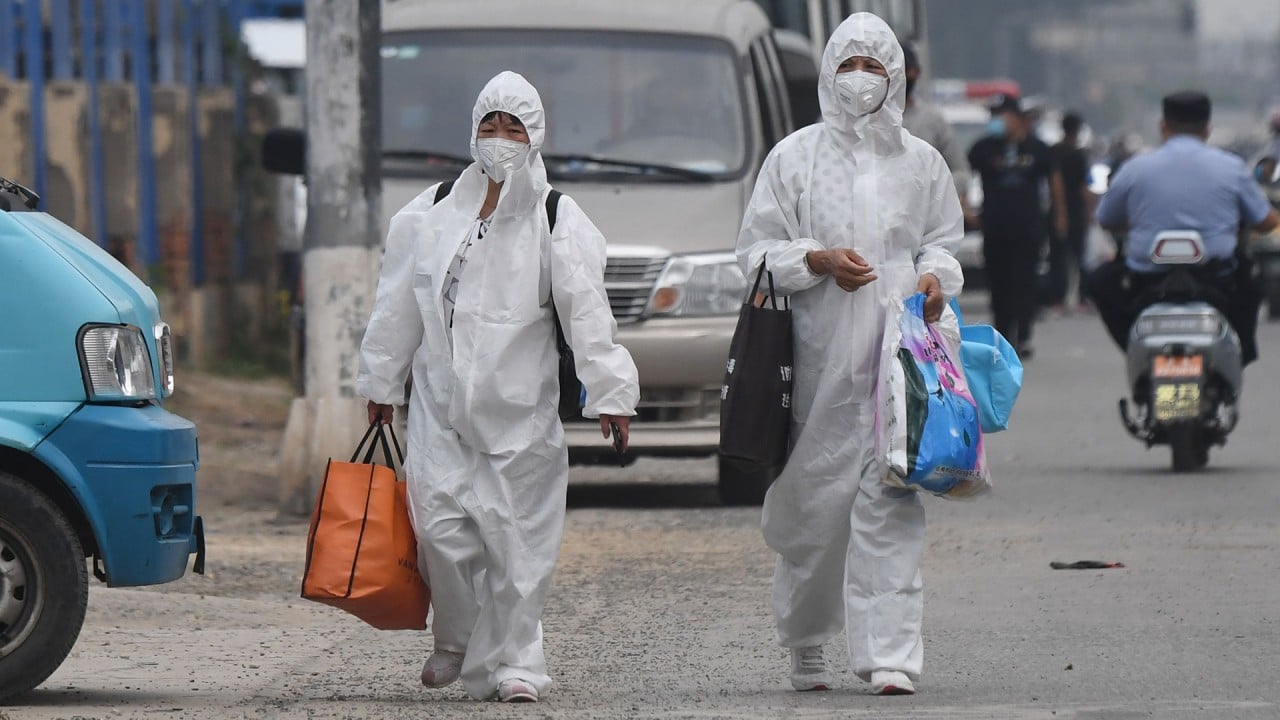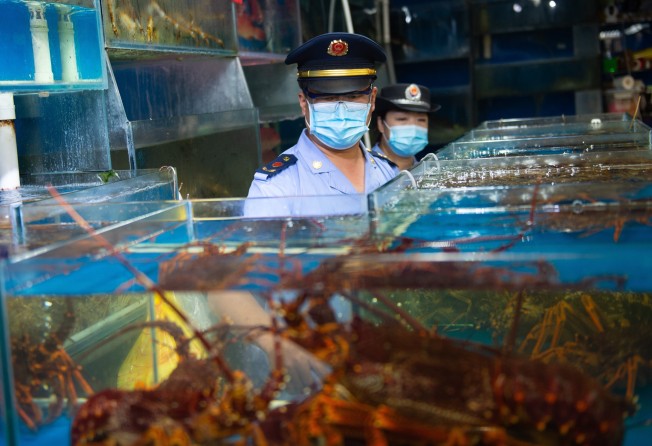
01:39
New coronavirus outbreak at Beijing food market fuels fears of second wave of cases in China

China’s disciplinary watchdog has called for an overhaul of wholesale food markets to bring them up to modern standards after a coronavirus outbreak led to a return of restrictions in the capital Beijing on Wednesday.
An article published on the website of the Central Commission for Discipline Inspection (CCDI) said the latest cluster – all linked to Beijing’s sprawling Xinfadi market – had raised the question: “how do we run a clean, sanitary, modernised wholesale market that is in line with a metropolis?”

01:39
New coronavirus outbreak at Beijing food market fuels fears of second wave of cases in China
Beijing authorities raised their emergency response to the second highest level in a late-night conference on Tuesday, putting the city into partial lockdown as infections related to the market reached 137. The initial coronavirus cases in the central Chinese city of Wuhan were also associated with a market, which has since been shut down and thoroughly sanitised.
The CCDI is the Communist Party’s highest internal control institution, best known for its anti-corruption investigations. Its article was damning of China’s markets, commenting that “the dirty and chaotic appearance in such markets shows the immaturity of the urban circulation system for agricultural products”.
“In people's impressions … [the markets] brought locals convenience, but they have also generated a series of environmental and hygiene issues such as sewage, noise, mosquitoes and vermin, and traffic jams.”
The Beijing outbreak had also exposed deficiencies in supply chain monitoring, the article said. One possibility is that the Xinfadi market cluster originated from contaminated seafood or meat transported along a frozen food supply chain.
The article quoted China Agricultural University professor An Yufa who said many of the country’s markets had been built in the 1980s and 1990s, with little thought given to parking, space and sewage treatment facilities. He described management of these markets as “primitive” – unregulated and inefficient, with simple packaging and messy storage facilities.
An said a modernised market should be standardised, with a stable supply chain, food that was trackable and supervised, stable prices, a clean environment, logistics and proper rubbish disposal.
Jia Ping, executive director of Beijing-based think tank the Health Governance Initiative, said wholesale markets tended to be easy places for the transmission of disease, with their large population flows and potential zoonoses risk. “We should take targeted measures to offset the risks, with the establishment of a smart management system, instead of shutting them off once and for all.”
Jia suggested strengthening public health intervention measures, such as regular sanitising every night, which should be maintained after the current emergency response was downgraded. He also recommended government-sponsored daily inspections for every booth to sample livestock and poultry, and easy-access rapid test stations on site. Retired volunteers trained in hygiene should also patrol the market and record anything suspicious, he said.
Furthermore, markets needed low-cost and intelligent supply chain tracking, from production to market and then to restaurants or supermarkets, he said, adding that measures controlling traffic flow and social distancing could be relaxed as the situation changed.
Over the years, China has upgraded a number of wholesale markets across the country. In general, these upgrades have included the addition of parking spaces, public washrooms, an increased number of stalls, separating of raw and cooked meat, sanitation measures and improved sewage systems.
The Jingshen Seafood Market in Beijing, which was also shut last week, was upgraded in 2017 to establish a testing centre for the detection of poor-quality food and a customer centre.